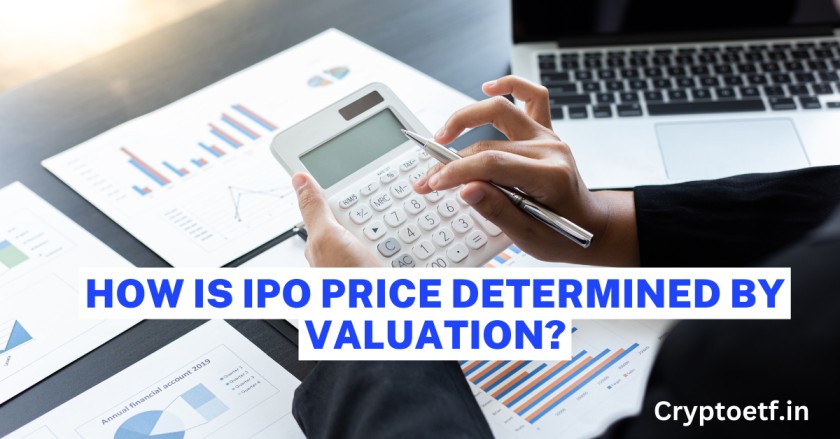In the world of finance, one of the most critical and intriguing processes is Initial Public Offering (IPO) valuation. It’s a complex blend of art and science that determines the price at which a company’s shares will be offered to the public for the first time. In this comprehensive guide, we will delve deep into IPO valuation, demystify the intricacies, and provide you with invaluable insights into this fundamental aspect of the financial market.
Understanding IPO Valuation
What is IPO Valuation?
IPO valuation is the process of determining the fair market value of a company’s shares before they are offered to the public through an initial public offering. It is a crucial step in the IPO journey, as it directly impacts the pricing of shares and, subsequently, the success of the IPO itself.
Why is IPO Valuation Important?
Understanding IPO valuation is crucial for investors considering participation in an Initial Public Offering (IPO). Here’s why investors should pay close attention to the valuation process:
1. Informed Investment Decisions: By comprehending IPO valuation, investors can make more informed investment decisions. This knowledge empowers them to assess whether the IPO’s share price aligns with their own valuation assessment, allowing for better choices in allocating capital.
2. Evaluating Fairness: IPO valuations conducted by investment banks provide a benchmark for the stock’s perceived value. Investors can use this as a reference point to evaluate whether the market has priced the shares fairly. This insight helps investors avoid overpaying or missing out on attractive investment opportunities.
3. Risk Mitigation: A deep understanding of IPO valuation enables investors to assess the risk associated with the investment. An overvalued IPO may carry higher risk, as it may lead to subsequent share price corrections. Conversely, an undervalued IPO may present an opportunity for capital appreciation.
4. Identifying Mispricing: In some cases, the market may misprice IPO shares due to various factors like market sentiment or limited information. Investors who understand valuation can identify discrepancies between the offering price and their own estimates, potentially capitalizing on pricing inefficiencies.
5. Portfolio Diversification: IPO investments are an essential component of portfolio diversification. By accurately assessing IPO valuations, investors can strategically allocate their investments across a range of asset classes, reducing overall portfolio risk.
6. Due Diligence: Evaluating IPO valuations involves a careful review of the company’s financials, business model, and growth prospects. This due diligence process not only helps in understanding valuation but also provides valuable insights into the company’s fundamentals.
7. Caution and Risk Management: While understanding IPO valuation is essential, investors should exercise caution and perform thorough due diligence. Reading the prospectus and other relevant documents is crucial to gain a complete understanding of the risks associated with the investment.
Methods of IPO Valuation
Comparative Valuation
Comparative valuation, often referred to as market multiples or peer group analysis, involves comparing the target company with similar publicly traded companies. Key metrics like Price-to-Earnings (P/E) ratio, Price-to-Sales (P/S) ratio, and Price-to-Book (P/B) ratio are used to gauge the company’s value in relation to its peers.
Discounted Cash Flow (DCF) Analysis
DCF analysis is a more complex method that estimates the present value of a company’s future cash flows. It considers factors like revenue growth, operating expenses, and discount rates to arrive at a valuation figure. This method is highly regarded for its precision.
Precedent Transaction Analysis
In this approach, valuation is determined by analyzing the prices paid for similar companies in previous transactions. It’s particularly useful when there’s a lack of comparable publicly traded companies.
Factors Influencing IPO Valuation
The pre-IPO valuation of a company is a critical step in determining the share price at which it will go public. It’s a complex process influenced by a multitude of factors. Here are the key considerations that influence pre-IPO valuation:
1. Number of Shares Being Sold: The total number of shares being offered in the IPO can significantly impact the valuation. A larger number of shares may dilute the ownership stake of existing shareholders, potentially affecting the pricing strategy.
2. Organizational Structure: The internal structure of the private company plays a crucial role. Factors such as the distribution of ownership, the presence of multiple share classes, and the rights attached to different types of shares can affect the valuation calculation.
3. Comparable Company Analysis: Companies often look at the current prices of shares of similar companies within the same sector. This comparative analysis helps in assessing where the company stands in relation to its peers and guides the valuation process.
4. Growth Potential: The growth prospects of the company are a significant driver of valuation. Investors are willing to pay a premium for companies with strong growth potential, as it indicates the ability to generate future revenue and profits.
5. Business Model Effectiveness: The efficiency and effectiveness of the company’s business model impact valuation. A well-structured and profitable business model can command a higher valuation.
6. Market Trends: The general trends in the stock market and the broader economic environment can influence valuation. Bullish markets may support higher valuations, while bearish markets may lead to more conservative pricing.
7. Demand from Potential Investors: The level of interest and demand from potential investors is a crucial factor. Strong demand can drive up valuations, while weak interest may lead to more modest pricing.
8. Company’s Story and Values: Sometimes, intangible factors such as the company’s success story, its core values, and the products or services it offers can have an emotional impact on investors. This can influence their willingness to pay a premium for the company’s shares.
The Role of underwriter in pricing an IPO
The role of the underwriter in pricing an IPO is pivotal. As the name suggests, underwriters assume a critical position in the IPO process, primarily responsible for determining the optimal price at which the company’s shares should be offered to the public. Their role involves a complex interplay of market analysis, investor sentiment, and negotiation with the issuing company. Let’s delve deeper into the key aspects of their role:
Assessing Demand: Underwriters begin by assessing the demand for the IPO shares. They engage with various stakeholders, including potential investors, financial institutions that may provide funding for share purchases, and industry analysts who closely follow the company’s performance. This extensive information-gathering process enables them to gauge the level of interest and demand in the market.
Market Research: Underwriters conduct thorough market research to understand prevailing conditions, market sentiment, and economic factors that could impact the IPO. This analysis includes evaluating similar IPOs and assessing their success or challenges in the current market environment.
Determining the Offer Price: With a comprehensive understanding of demand and market conditions, underwriters work to arrive at a price that will not only attract sufficient buyers but also ensure that all the shares offered by the company are sold. This pricing strategy is crucial, as it directly affects the success of the IPO.
Negotiation: Once underwriters have a preliminary price in mind, they enter into negotiations with the company issuing the shares. These negotiations can lead to adjustments in the initial pricing assessment but are always guided by the underwriters’ belief in what is feasible and attractive to investors in the market.
Maximizing Value: Underwriters are inherently aligned with the company’s interests as they aim to maximize the value of the IPO. Their goal is to secure the best possible price for their client while ensuring that the offering is appealing to potential investors.
In essence, underwriters act as intermediaries between the company going public and the investors in the market. They bring together their expertise in financial analysis, market dynamics, and investor sentiment to strike a balance between achieving the highest possible price for the company’s shares and ensuring that there is sufficient demand to sell all the shares. Their role is a delicate blend of financial acumen and negotiation skills, essential for the success of the IPO.

Naren is a finance graduate who is passionate about cryptocurrency and blockchain technology. He demonstrates his expertise in these subjects by writing for cryptoetf.in. Thanks to his finance background, he is able to write effectively about cryptocurrency.
